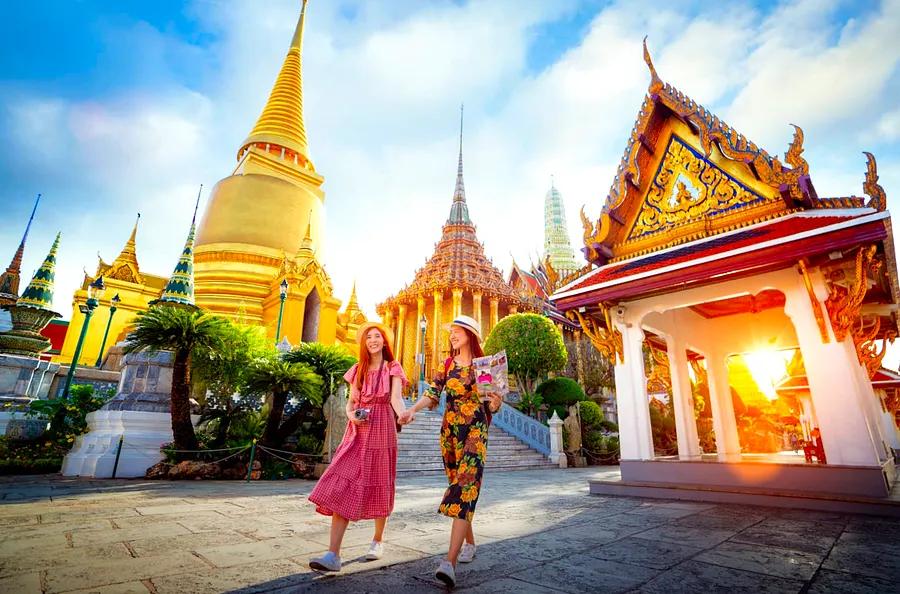Anti-Asian hate crimes are deterring Chinese tourists from visiting the United States

Cannon Yu is based in Shantou, Guangdong province.
Previously, her role in sales at a packaged food company took her to international business events. However, she hasn't traveled abroad since early 2020, opting for virtual sales meetings instead of attending in-person conferences in countries like Thailand, Germany, and Morocco.
While many nations have reopened borders and resumed travel to pre-pandemic levels, China has remained highly cautious, maintaining a strict 'zero-Covid' policy.
Although these policies keep Chinese citizens confined, they also limit foreign access, making it unlikely for people like Yu to engage with individuals from other countries.
Although China has yet to announce any plans for lifting quarantine measures and other barriers to international travel, Yu is eager to hit the road and travel again.
However, there is one notable exception – she has strong concerns about traveling to the United States.
The Eastern Perspective on the West
Scott Moskowitz, a geopolitical risk analyst for APAC at the decision intelligence firm Morning Consult, explains that Chinese state-controlled media has amplified instances of anti-Asian violence in the US, aiming to dissuade citizens from visiting the country.
He describes it as 'a strategically curated media environment that overemphasizes negative foreign news while tightly controlling coverage of challenging or unsettling domestic events.'
Yu's experiences support this viewpoint.
She says, 'They treat people with prejudice there. Not just Chinese people, but Black people as well. It’s hard to get fair treatment for anyone in the United States.'
She shares that she has spoken with friends who visited the US, and they told her they were detained and searched by customs officials before being allowed to leave the airport.
Yu is part of a growing group of Chinese travelers who openly express that anti-Asian discrimination in the US has made them hesitant to visit in the future.
This month, Morning Consult released a study that highlights this trend. Their survey of 1,000 adults revealed that 'a significant number of Chinese individuals have little to no desire to visit the US,' with both violence and anti-Asian discrimination cited as key reasons.
Morning Consult's data reveals that 22% of mainland Chinese participants have no interest in visiting the US, while another 23% express only limited interest.
Among the survey respondents, 57% cited violent crime as a major deterrent to traveling to the US, with 52% pointing to terrorism, 36% mentioning petty crime, and 44% expressing concerns about anti-China sentiment among locals.
Mass shootings are another significant worry, with those who have heard or read about the school shooting in Uvalde, Texas earlier this year being 'much more likely' to list violent crime as a reason to avoid the US, according to Morning Consult's findings.
As a result, some Chinese travelers are turning their attention to other destinations, with European countries emerging as preferred alternatives to the US, as highlighted by the survey.
The Surge in Violence
During the pandemic, there has been a rise in anti-Asian harassment globally, largely fueled by misinformation or misplaced anger regarding the origins of Covid-19.
The nonpartisan group Stop AAPI Hate offers a platform for individuals to report incidents of harassment and attacks.
One of the most widely reported anti-Asian hate crimes in the US during the pandemic was the 'Atlanta spa shootings,' where eight women across three massage parlors were murdered by Robert Aaron Long, a White man. Six of the victims were Asian, and Long faced hate crime charges alongside the murders.
In response, last year, Congresswoman Grace Meng from New York introduced the Covid-19 Hate Crimes Act, which was signed into law by President Joe Biden.
Meng, who is of Taiwanese heritage, represents parts of Queens, a multicultural borough in New York City with a significant Asian American population.
These incidents, ranging from verbal harassment to physical assaults, receive substantial media attention outside the US, particularly in China.
Ongoing geopolitical tensions only amplify the situation. Moskowitz notes that the growing perception of the US as China's primary rival has increased focus on stories of anti-Asian hate and violence in America, even though similar events occur in other countries as well.
'This disparity is particularly noticeable in Chinese state media coverage of the US compared to Europe and other regions. Much of this is strategically orchestrated to weaken the global appeal and soft power of a nation that China views as its political and ideological adversary,' Moskowitz explains to Dinogo Travel.
'In China, there is a strong belief that the world holds biases against the country,' Moskowitz continues. 'Personal and national identities are deeply intertwined there, so concerns arise that broader political disputes and resentments – whether genuine or perceived – could be reflected onto individuals when traveling abroad.'
Changing Perceptions
While it won't be easy to shift Chinese travelers' perceptions of the US, it’s certainly achievable.
'The findings of this survey suggest that travel companies and destinations should focus on emphasizing safety in their marketing campaigns aimed at Chinese travelers,' says Lindsey Roeschke, travel and hospitality analyst at Morning Consult and co-author of the survey with Moskowitz.
She further advises: 'Travel brands should offer pre-departure information on safety measures and tips. For those looking to go the extra mile, providing access to safety-conscious tour guides or a dedicated personal safety representative during the trip could be beneficial.'
Some countries have specifically cautioned their citizens about traveling to the US, particularly regarding the risks of gun violence.
In 2019, Amnesty International issued a warning urging travelers to 'exercise caution and have an emergency contingency plan when traveling throughout the USA' due to the prevalence of gun violence.
Cannon Yu remains excited about traveling beyond China, once the process becomes easier.
Despite all the challenges, her curiosity about the US remains strong, and she hopes to experience it firsthand one day.
One place she particularly dreams of visiting is Las Vegas. 'I want to try gambling,' she shares. After a brief pause, she adds, 'And I want to make new friends.'
Top image: Asian American community leaders place flowers on a memorial for murder victim Christina Yuna Lee after an anti-Asian hate rally in New York City. Photo by Barry Williams/New York Daily News/Tribune News Service via Getty Images.

1

2

3

4

5
Evaluation :
5/5